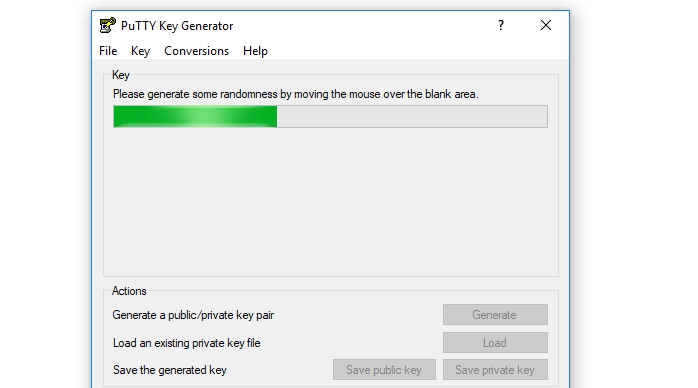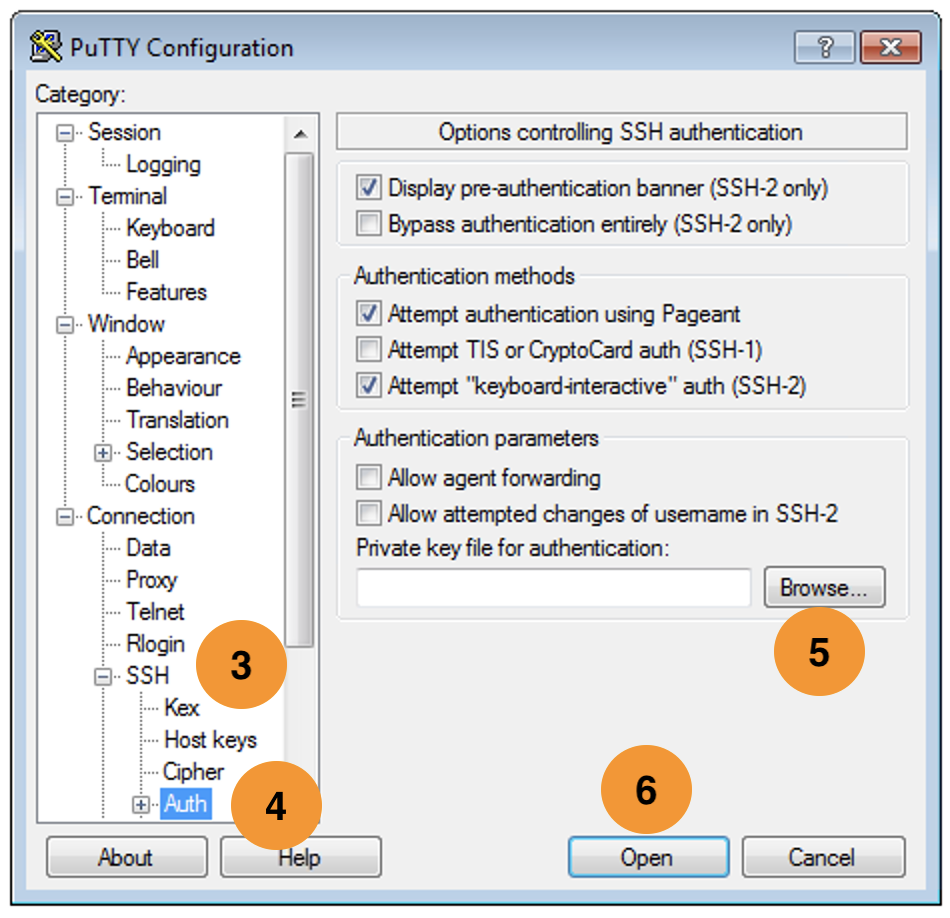To Generate Ssh Keys In Unix For User Account
Oct 20, 2014 If you do not already have a public SSH key uploaded to your account, or if you would like to add a new key to your account, click on the “+ Add SSH Key” button. This will expand to a prompt: In the “SSH Key content” box, paste the content of your SSH public key. Sep 06, 2019 Keys can also be distributed using Ansible modules. The opensshkeypair module uses ssh-keygen to generate keys and the authorizedkey module adds and removes SSH authorized keys for particular user accounts. SSH key pairs are only one way to automate authentication without passwords. Just created a new virtual Ubuntu server and I'm in the process of hardening it for production use. I currently have a root account. I want to do the following: Create a new user (let's call them. This question is similar to SSH public key authentication - can one public key be used for multiple users? But it's the other way around. I'm experimenting on using ssh so any ssh server would work for your answers. Can I have multiple public keys link to the same user? What are the benefits of doing so? The following sections show how to generate an SSH key pair on UNIX, UNIX-like and Windows platforms. Generating an SSH Key Pair on UNIX and UNIX-Like Platforms Using the ssh-keygen Utility UNIX and UNIX-like platforms (including Solaris and Linux) include the ssh-keygen utility to generate SSH key pairs. Set up public-key authentication using PuTTY on a Windows 10 or Windows 8.x computer. Open your Startup folder. Press Win-r, and in the 'Open' field, type shell:startup, and then press Enter. Right-click inside the Startup folder, and then select New and Shortcut. In the 'Type the location of. Oct 20, 2014 If you do not already have a public SSH key uploaded to your account, or if you would like to add a new key to your account, click on the “+ Add SSH Key” button. This will expand to a prompt: In the “SSH Key content” box, paste the content of your SSH public key.
To Generate Ssh Keys In Unix For User Account Download
Several tools exist to generate SSH public/private key pairs. The following sections show how to generate an SSH key pair on UNIX, UNIX-like and Windows platforms.
Generating an SSH Key Pair on UNIX and UNIX-Like Platforms Using the ssh-keygen Utility
UNIX and UNIX-like platforms (including Solaris and Linux) include the ssh-keygen utility to generate SSH key pairs.
- Navigate to your home directory:
- Run the ssh-keygen utility, providing as
filenameyour choice of file name for the private key:The ssh-keygen utility prompts you for a passphrase for the private key.
- Enter a passphrase for the private key, or press Enter to create a private key without a passphrase:
Note:
While a passphrase is not required, you should specify one as a security measure to protect the private key from unauthorized use. When you specify a passphrase, a user must enter the passphrase every time the private key is used.
/xbox-360-live-generator-activation-key.html. /age-of-mythology-titans-cd-key-generator.html. The ssh-keygen utility prompts you to enter the passphrase again.
- Enter the passphrase again, or press Enter again to continue creating a private key without a passphrase:
- The ssh-keygen utility displays a message indicating that the private key has been saved as
filenameand the public key has been saved asfilename.pub. It also displays information about the key fingerprint and randomart image.


Create Ssh Key Windows 10
Generating an SSH Key Pair on Windows Using the PuTTYgen Program
The PuTTYgen program is part of PuTTY, an open source networking client for the Windows platform.
To Generate Ssh Keys In Unix For User Account Windows 10
Create Ssh Public Key On Windows
- Download and install PuTTY or PuTTYgen.
To download PuTTY or PuTTYgen, go to http://www.putty.org/ and click the You can download PuTTY here link.
- Run the PuTTYgen program.
- Set the Type of key to generate option to SSH-2 RSA.
- In the Number of bits in a generated key box, enter 2048.
- Click Generate to generate a public/private key pair.
As the key is being generated, move the mouse around the blank area as directed.
- (Optional) Enter a passphrase for the private key in the Key passphrase box and reenter it in the Confirm passphrase box.
Note:
While a passphrase is not required, you should specify one as a security measure to protect the private key from unauthorized use. When you specify a passphrase, a user must enter the passphrase every time the private key is used.
- Click Save private key to save the private key to a file. To adhere to file-naming conventions, you should give the private key file an extension of
.ppk(PuTTY private key).Note:
The.ppkfile extension indicates that the private key is in PuTTY's proprietary format. You must use a key of this format when using PuTTY as your SSH client. It cannot be used with other SSH client tools. Refer to the PuTTY documentation to convert a private key in this format to a different format. - Select all of the characters in the Public key for pasting into OpenSSH authorized_keys file box.
Make sure you select all the characters, not just the ones you can see in the narrow window. If a scroll bar is next to the characters, you aren't seeing all the characters.
- Right-click somewhere in the selected text and select Copy from the menu.
- Open a text editor and paste the characters, just as you copied them. Start at the first character in the text editor, and do not insert any line breaks.
- Save the text file in the same folder where you saved the private key, using the
.pubextension to indicate that the file contains a public key. - If you or others are going to use an SSH client that requires the OpenSSH format for private keys (such as the
sshutility on Linux), export the private key:- On the Conversions menu, choose Export OpenSSH key.
- Save the private key in OpenSSH format in the same folder where you saved the private key in
.ppkformat, using an extension such as.opensshto indicate the file's content.